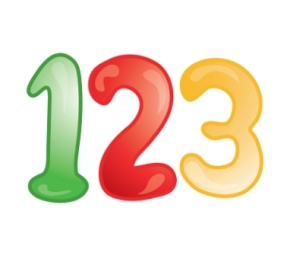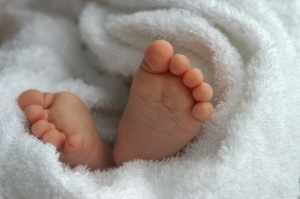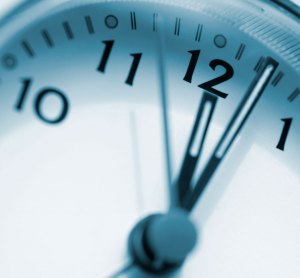 “Nor does he say (aught) of (his own) Desire. It is no less than inspiration sent down to him” (Chapter 53, Verse 3 & 4).
“Nor does he say (aught) of (his own) Desire. It is no less than inspiration sent down to him” (Chapter 53, Verse 3 & 4).
I have a confession to make. I never really took my time to make ‘ablution’ the way I ought to. By ‘ought to’ I’m referring to the detailed care that was encouraged by our prophet (peace and blessings of Allah be upon him). However, when conducting the research for this article, I felt quite foolish, to say the least.
Not only was I squandering the chance to get more reward for perfecting ablution, but I was also wasting golden opportunities to enhance my health and general well being.
A Daily Ritual
Fourteen centuries ago, our Prophet, a walking encyclopedia if I may so describe him, gave us a prescription of 26 washing movements to be carried out 5 times a day, a total of 130 daily washing movements, to grant us optimum health.
“O ye who believe! when ye prepare for prayer, wash your faces, and your hands (and arms) to the elbows; Rub your heads (with water); and (wash) your feet to the ankles. If ye are in a state of ceremonial impurity, bathe your whole body. But if ye are ill, or on a journey, or one of you cometh from offices of nature, or ye have been in contact with women, and ye find no water, then take for yourselves clean sand or earth, and rub therewith your faces and hands, Allah doth not wish to place you in a difficulty, but to make you clean, and to complete his favor to you, that ye may be grateful.” (Chapter 5, Verse 6)
Before a Muslim performs his prayers, he carries out the ablution movements mentioned in the above verse as well as others, which the Prophet (peace and blessings of Allah be upon him) has added.
Thus, the ablution comprises of washing the hands, arms right up to the elbow, face, mouth, nostrils, and feet up the ankle, all three times each. The inside and behind the ears, as well as the part of the head above the forehead is wiped once.
Done five times a day, it not only cleanses these vital parts of the body from dust and dirt but also “softens” and refreshes them
Interestingly enough, the Prophet (peace and blessings of Allah be upon him) also encouraged doing ablution before going to bed. This same ritual is also encouraged by Yoga experts who say that washing important motor and sensory organs such as the hands, arms, eyes, legs, mouth and genitals before sleep using cool water relaxes the body preparing it for a deep sleep.
Stimulating the Biological Rhythms
In an article titled “Muslims Rituals and their Effect on the Person’s Health”, Dr. Magomed Magomedov, assistant to the department of the Man’s General Hygiene and Ecology in the Daghestan State Medical Academy, speaks about how ablution stimulates the biological rhythms of the body and specifically Biological Active Spots (BASes), very much like the idea behind Chinese reflexotherapy.
Presently we know that a man is a complex system of electromagnetic fields, meridians, biological rhythms and so on. Man’s internal organs, in their turn, present a no less sophisticated bioenergetical whole; they all have indissoluble multi-channel bilateral connections with the skin, which hosts special spots, whose functions resemble those of buttons on “control” and “ recharge boards” responsible for particular organs. These spots are called biologically active spots (BASes).
While pointing out to the similarities between ablution and the science of Chinese reflexology in his fascinating article, Dr. Magomedov also states the main different points. To become a doctor in reflexology, he says, one has to take a 15 to 20 year course of study, incomparable with the simple learning techniques of ablution.
In another comparison, reflexotherapy was primarily used to cure diseases and very rarely for prevention, while, as we shall see, ablution has many preventive benefits.
There was also a negative side to reflexotherapy, he says, one that is not found in ablution; a patient was exposed to traumas since doctors used cauterisation.
“The majority of the most powerful BASes are being washed during the Muslim ritual. It is not the doctor, who had studied for many years, who does it, but every Muslim by himself. Besides, praying five times a day obliges a Muslim to take the preventive measures against diseases beforehand.”
According to Dr. Magomedov, Chinese medicine says that there are more than 700 BASes, and sixty-six of them have quick reflex therapy effects and are named the drastic (or aggression or antique or prime-elements) spots.
Out of these sixty-six spots, sixty-one of them are located in zones required for ablution while the other five are located between the ankle and knee (an area which is desirable, according to prophetic traditions, to wash).
Thus, ablution becomes a kind of treatment complex, which includes the hydromassage of the BAS, their thermal and physical stimulation.
The BASes in the face (which are washed during ablution) “recharge” such organs as the intestines, stomach and bladder, in addition to having a positive effect on the nervous and reproductive systems, says Dr. Magomedov in his findings, adding that the BAS responsible for the osseous system, intestine, nervous system, lumbar area, stomach, pancreas, gall-bladder, thyroid gland, solar plexus and others are situated on the right leg, another area reached by ablution.
The left leg has the BAS responsible for the work of the pituitary gland, the brain organ that regulates the functioning of the endocrine glands and controls growing. In the ear’s cochlea are hundreds of BASes that “harmonize the work of almost all organs, decrease high blood pressure and relieve tooth and throat pain.” Ear ablution is considered Sunna (Prophetic tradition).
Another aspect that Dr. Magomedov stresses on is that Prophetic tradition emphasized the importance of massaging and applying pressure during ablution, which is something that has a scientifically-grounded explanation.
Dr. Magomedov said that his studies were triggered by his solemn belief that the five-time-a-day Muslim prayers were bound to have not only an “indisputable spiritual effect” but were also bound to “have a purely physical healing effect as well.”
Former research carried out in the Soviet Union regarding BAS was regarded unworthy because they believed that “man was not supposed to have either soul or an energy body, because the opposite would contradict the materialistic (atheistic) ideology of those times,” says Dr. Magomedov.
Preventive Cleansing
From a non-alternative medicine perspective, Mukhtar Salem, in his book titled ‘Prayers: a Sport for the Body and Soul’, speaks about the health benefits of every aspect of ablution.
He does not speak about the BASes in one’s body, but nevertheless, he describes the preventive benefits of ablution.
Ablution, he says, helps prevent skin cancer. This is his explanation: the areas that are washed during ablution are the parts of the body that are most prone to be exposed to pollution, whether it is pollution from the internal secretions of the body on to the skin surface, such as sweat, or whether it is external. Ablution, removes this ‘pollution’ five times a day, and hence maintains a clean outside layer of skin, which in turn helps the cells underneath to function properly.
Also, washing with water helps invigorate the ends of the blood vessels, as well as the nerves and glands that are near the skin surface, and hence helps them perform their functions efficiently.
Salem adds that research has proven that one of the main reasons behind skin cancer is that the skin is exposed to chemicals, especially petrochemicals, and that the best way to prevent skin cancer is by constantly removing these chemicals.
The obvious reason behind washing the mouth during ablution, Salem says, is to remove the food particles, which could cause teeth and gum problems. That is also the reason why siwak (brushing one’s teeth) is also encouraged before ablution.
When washing one’s nostrils, (a practice, which I myself find very hard, but will try to work on), one is also performing a preventive health measure as the germs trapped in the nostrils are removed and do not pass on to the respiratory system.
According to a study conducted by a team of doctors in Alexandria University, the Prophetic tradition, which urges the exaggeration of washing the nostrils by introducing the water in the nostril then blowing it out, positively affects the inner coating of the nostrils. Those who carried out the washing in the correct form had clean, shiny nostrils with no dust clinging to the small hair inside.
However, those who did not perform ablution had light colored, greasy nostrils and their nostril hairs fell off easily.
Repeated washing of the face invigorates the facial skin cells and helps prevent early wrinkles as well as having a cleansing effect on the inside of the eyes, which prevents eye infections, says Salem.
Washing the ear helps rid them from wax accumulation, which may cause ear infections as well as affecting the inner ear, which eventually causes body imbalances.
The Prophetic tradition of encouraging one to wash between the toes while washing the feet, is also extremely important, says Salem, as it prevents the foot, which in our modern times is trapped most of the day inside shoes, from acquiring athlete’s foot.
Over all, he adds, ablution also has an exercising effect on all the muscles involved in its movement, which are thus being stimulated five times a day or even more according to repetition.
Extinguishing the Fires of Anger
Prophetic tradition, with regards to ablution, is also ecologically friendly, as the Prophet repeatedly encouraged water conservation, even if abluting from a running river. Ibn Majah related that the Prophet Muhammad (peace be upon him) said, “There is a shaytan (devil) for ablution called `walhan‘, meaning greedy, avoid the waste of water.”
Muslims are encouraged to ablute not only before praying or going to bed, but also when entering the mosque, making the call to prayer, delivering a sermon, after visiting a graveyard, after touching or carrying a dead person and also before reading the Quran.
We are also encouraged to ablute while being in a state of anger for the cooling and refreshing effect of the water, as we are told that anger is from the devil who is made out of fire and can therefore be put off by water.
Finally, there is a moral to this article, besides understanding the benefits of ablution. One should never take things at face value, and must have strong faith that everything that Allah prescribes has a wisdom behind it that we may or may not know.
“And they say: ‘We hear, and we obey: (We seek) Thy forgiveness, our Lord, and to Thee is the end of all journeys.’” (Chapter 2, Verse 285)
SOURCE: http://www.islamonline.net
Filed under: Duas or prayers, Health Talks, Ways of light | Tagged: ablution. health, cleaniness, cleansing, day to day, fact, faith, Habits, Islam, Muslims, Prayers, salat, science | Leave a comment »













You must be logged in to post a comment.